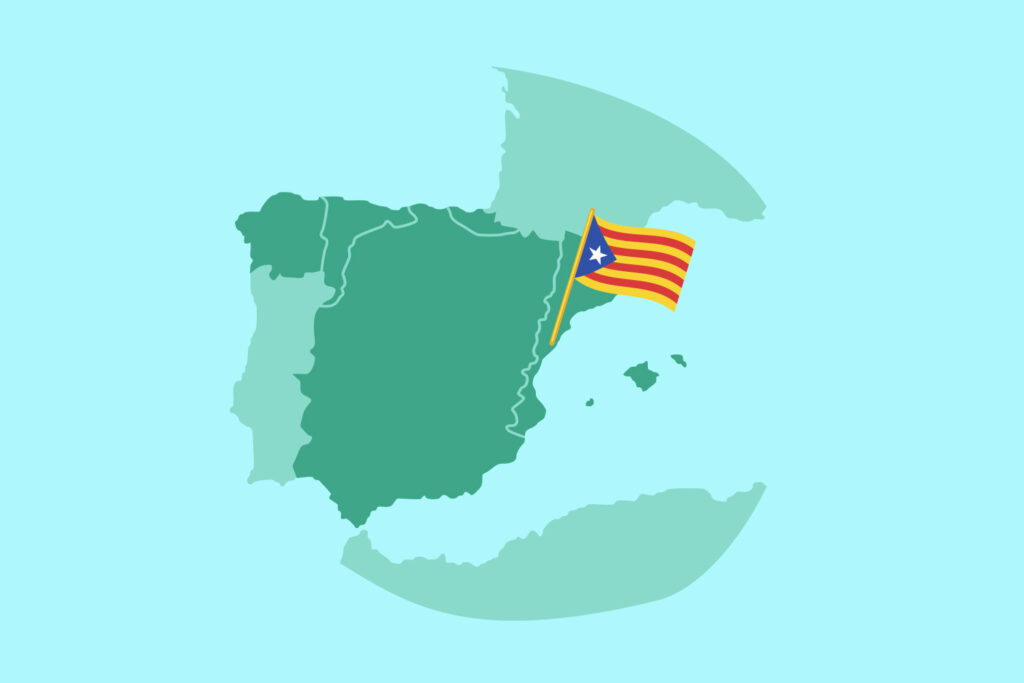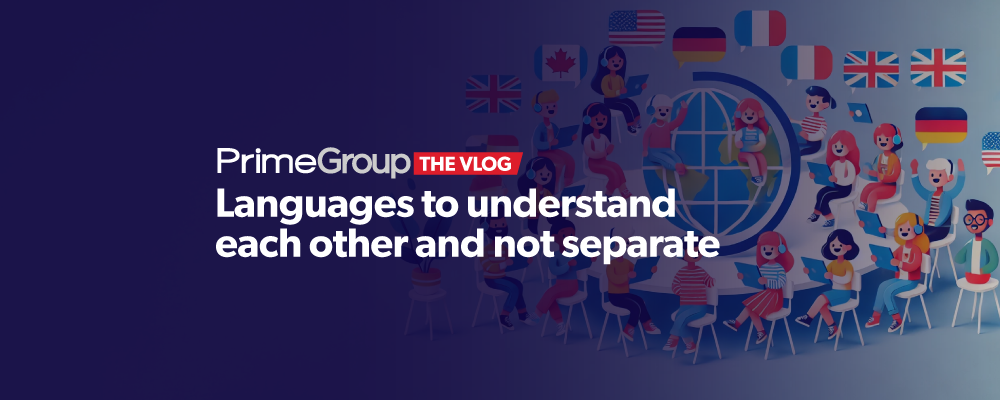Let’s say that languages are, above all, vehicles of communication and understanding. The diversity of languages is an undeniable cultural wealth. However, the exaltation of a certain language in education, in the media or in the political sphere with the sole objective of highlighting the uniqueness of the community that speaks it represents a perverse political use that ends up being harmful even for the language that wants to be promoted.
Languages are fundamental to the cultural identity of a people. According to Benedict Anderson, in his book “Imagined Communities”, languages help to form national identities by allowing speakers to imagine themselves as unique and distinct entities. In this case, languages no longer serve only to communicate, but also for a certain group to believe and feel different.
This difference based on language or dialect serves in the best of cases to achieve greater cohesion of the group and to preserve its cultural roots, because language is undoubtedly a valuable intangible heritage, just like the gastronomy or customs of the place. The problem arises when certain social leaders use language as a political instrument in the style of divide and conquer.
The exaltation of the local language, imposing its use on speakers of another language and proscribing or marginalizing the common majority language, is undoubtedly an act of pernicious social engineering. Well, this way of operating exists in many Hispanic countries starting with Spain itself. Let’s look at some specific examples to better understand this phenomenon.
Catalonia and Catalan:
In Catalonia, Catalan is a co-official language along with Spanish. During the dictatorship of Francisco Franco, there were periods in which the use of Catalan was restricted in official and educational contexts. After the transition to democracy, the Generalitat of Catalonia implemented language immersion policies that prioritize Catalan in education. Although these policies are presented as an effort to preserve the Catalan language and culture, they have also been used to promote a distinct Catalan identity, fomenting separatist movements such as the one that was foiled in 2017.

Although almost 60% of Catalans acknowledge that they speak Spanish and less than 40% Catalan, according to official data, the fact is that in all public institutions, education and media subsidized by the regional government, the Generalitat, Catalan is used only and exclusively. The common language, Spanish, is openly and explicitly ignored by local authorities, even though it is the most widely spoken.
Quebec and French:
In Quebec, French is the official language and is actively promoted through laws such as Bill 101, which establishes French as the main language in education, work and business. This policy has been essential to the Quebec independence movement, led by the Parti Québécois. While it seeks to protect the Francophone language and culture, it also reinforces a distinct identity and fuels independence aspirations.
Cases in Latin America
Now, let’s move to Latin America, where we find similar situations.
Bolivia and Indigenous Languages:
Bolivia is a country with rich linguistic diversity, with 37 official languages in addition to Spanish. During the government of Evo Morales, indigenous languages were actively promoted. This effort at cultural recognition also had a political component, used to differentiate indigenous communities from the rest of the Bolivian population.
Although it was presented as an advance in cultural rights, it also fostered divisions and tensions. Bolivia defines itself as a plurinational state, and languages are an instrument for the objective of some leaders to fragment the Andean country into differentiated political entities.
Peru and Quechua:
In Peru, Quechua is a language with a rich history that was not only recognized during Spanish colonization, but was given its own grammar even before many European languages. With independence from Spain, Quechua entered a period of decline as the use of Spanish was promoted more. In recent years, policies have been implemented to revitalize Quechua.
However, this push, understood as a way of highlighting the difference of indigenous peoples who speak Quechua, can end up marginalizing Spanish. The fact is that in Peru, giving up speaking and writing in Spanish, the common language of the country, is condemning these groups to cultural impoverishment and marginalization. Not speaking Spanish in Peru is depriving oneself of access to the labor market, higher education, as well as being a huge obstacle to participating in commercial exchange.
Guatemala and the Mayan Languages:
Guatemala has 24 Mayan languages in addition to Spanish. The promotion of these languages is essential for the cultural identity of indigenous communities. However, this linguistic diversity is also being used politically to separate these communities from the Guatemalan national identity, increasing tensions and polarization, but above all deepening the real backwardness of these communities that need Spanish to escape poverty and underdevelopment. It is sad to see that there are NGOs and international institutions that allocate money to ensure that education is in Mayan languages, depriving children and adolescents of access to knowledge that is written or disseminated in Spanish.
The personnel who promote this linguistic exaltation are often foreigners and also obtain economic benefits, academic advantages by coming from universities. The fact is that the promotion of indigenous languages when done to the detriment of Spanish condemns these communities to backwardness and marginalization.
Chile and Mapudungún:
Chile has a significant indigenous population, mainly of the Mapuche ethnic group, whose language, Mapudungún, has been revitalized. In recent years, policies have been implemented to promote the use of Mapudungún in education, in the media and in public institutions. At the Temuco airport, for example, bilingual signs can be seen in Spanish and the Mapuche language, which is a recognition of the linguistic reality of the Chilean Araucanía.
However, the promotion of Mapudungún is already part of a political agenda to reinforce the Mapuche identity in opposition to the Chilean national identity. The objective here is not cultural as it is claimed, but political. Mapuche leaders such as Elisa Loncón see in the differential fact of the language a means to reinforce the signs of Mapuche identity, making that people a differentiated political subject, that is, a nation with a vocation to become a state. Here too in the South of Chile, language and culture are used as political means for the Mapuche community to proclaim itself independent and sovereign one day.
In conclusion, while the promotion of regional and minority languages may be well-intentioned, it is often perversely used to divide and separate. This leads to confrontation, polarisation and impoverishment. Instead of exalting linguistic differences, we must seek policies that recognise and respect diversity, but also promote the integration of communities in a wider political and economic space, and that means promoting common languages even more strongly.



